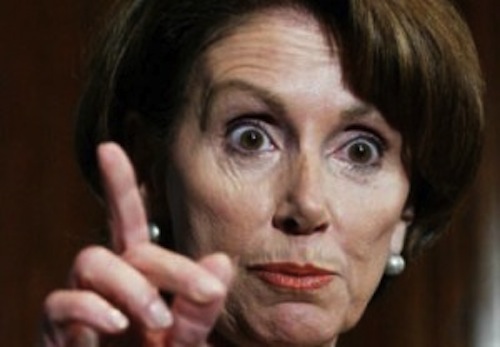
A rare un-photoshopped image of Nancy Pelosi. Seriously, Google her and try to find a picture of her head not on a dog's body.
The Congressional Budget Office released its preliminary assessment (caution: boring) of the House health care reform bill this morning, and the news is good: if all goes as planned, the Reconciliation Act to HR 4872 and HR 3590 will reduce the deficit by $130 billion in its first ten years. Notice that I say, “the news is good,” and not “the news is good for Democrats.” Finding out that a plan to improve the general welfare might actually save us a bunch of money is nice; if you like the idea of poor kids having medicine but don’t like the idea of the United States becoming a wholly-owned subsidiary of China, the CBO report should be a load off your mind. Of course, if you’re some sort of professional demagogue whose opposition to health care reform has been based on the supposedly enormous tax burden it will place on your audience, it puts you in a tough position. Theoretically, you should change your mind—deficits bad: health care bad, so now deficit reduction good: health care good—but that would feel uncomfortably similar to being wrong. No, when your position suddenly stops lining up with the facts, your only option is to change the facts.

